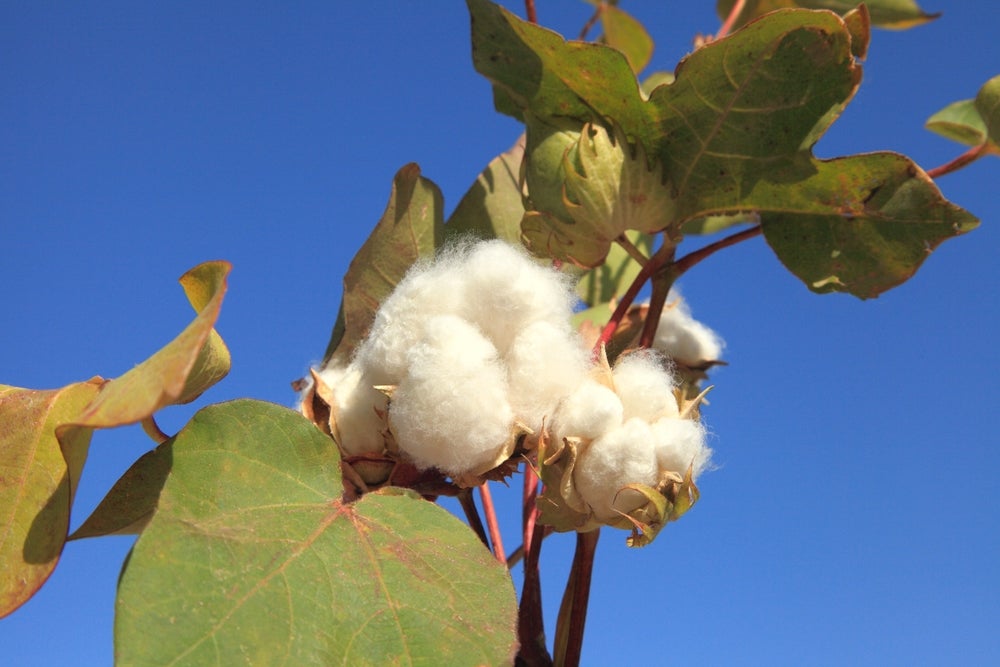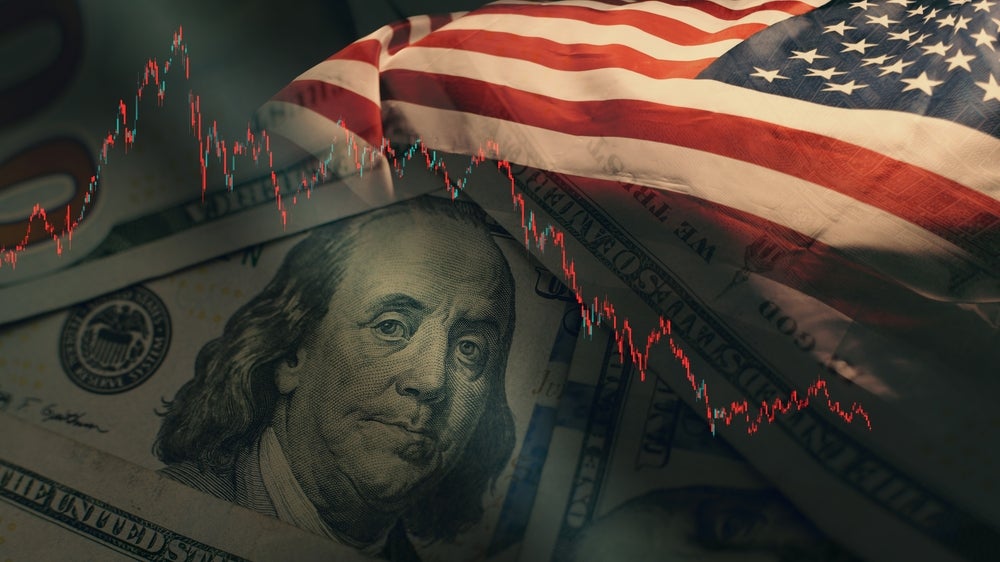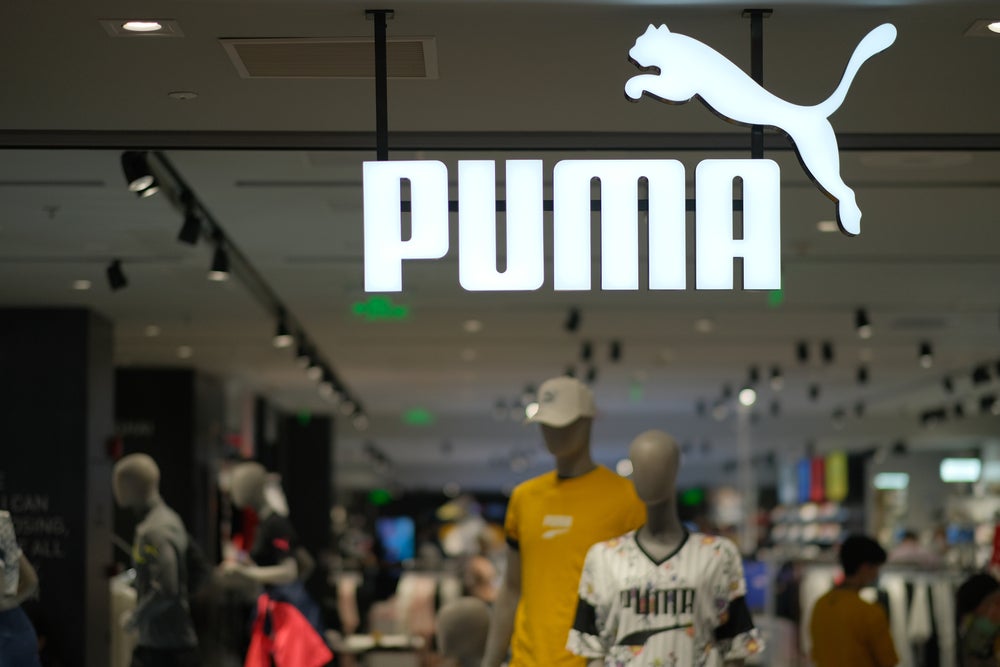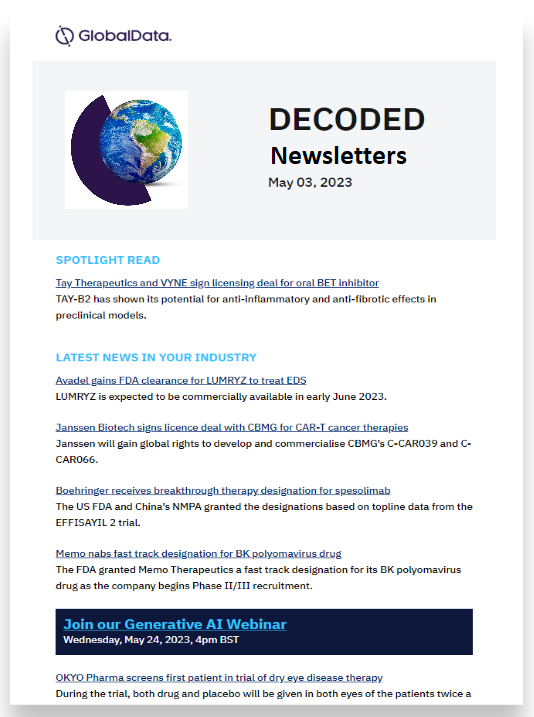
Apparel DECODED
Previous edition: 08 May 2024
Share article
Get the full version straight to your inbox.
Exclusive access to our best-in-class data & intelligence
Subscribe now
Explainer: Lululemon probe thrusts ‘misleading' green claims into spotlight
Lululemon is the latest brand caught up in allegations of “misleading” consumers with its sustainability claims as industry experts say companies must ensure any green claims made are “reasonable and balanced” to prevent reputational damage.

Earlier this year, environmental advocacy organisation, Stand.earth took aim at Lululemon whose business, it said, was: “inconsistent with its public claims to be an environmentally positive company”.
Its ire stemmed from the company’s slogan “Be Planet” and its ethos which is for its products and actions to avoid environmental harm and contribute to restoring a healthy planet.
But Stand.Earth pointed to the company’s latest impact report which it said “revealed another year of staggering growth in emissions – in fact, a 100% increase in climate pollution".
It also alleges the company relies heavily on climate-damaging fossil fuels to make its products — more than 60% of the materials it uses are fossil fuel-derived, materials which contribute to climate pollution, cannot be effectively recycled, do not biodegrade, and release microplastics in the oceans and waterways.
“Lululemon claims to ‘Be Planet’ but its own reporting shows that it has doubled carbon pollution since making the claim. It benefits from a carefully constructed image of environmental sustainability and wellness and claims to make products that contribute to a healthy environment, but its exponential growth has been built on fossil fuels, from clothing literally made from fracked gas to polluting manufacturing that threatens the health of communities in the Global South. Lululemon’s mantra is supposedly ‘Be Planet,’ when in reality it’s ‘Be Profit,’” said Tzeporah Berman, international programme director at Stand.earth.
Stand.earth moved to lodge its complaint with the Canadian Competition Bureau, in a bid that Lululemon rescind its claims and moves to making “clear and accurate environmental claims that avoid exaggeration.”
“Lululemon states that its ‘products and actions avoid environmental harm and contribute to restoring a healthy planet,’ however, its products are made in factories that burn coal for energy, and are made in countries, including Vietnam, Cambodia, and Indonesia that rely heavily on fossil fuels to power their production. Despite these claims, some of the company’s biggest suppliers have made no clear strides towards reducing their negative impact on the planet. I would call that greenwashing. If Lululemon wants its words to ring true, it should immediately commit to kicking out coal, and shifting its products from fossil fuels to clean energy,” said Rachel Kitchin, senior corporate climate campaigner at Stand.earth.
Canadian Competition Bureau launches probe
In a letter to Lululemon dated 26 April, The Canadian Competition Bureau confirmed it would be investigating the claims.
The inquiry will assess whether the company has been “making false, misleading and/or unsubstantiated representations,” according to the letter.
If the bureau finds that Lululemon has made materially false and misleading representations to the public, it could be fined a penalty of up to 3% of its gross global profits for each year the company committed greenwashing, potentially amounting to $400m or more. Stand.earth requests the funds be dispersed by the Environmental Damages Fund and used for climate mitigation and adaptation efforts. Lululemon would also be obligated to change or remove its greenwashing ‘Be Planet’ marketing, which is misleading people into believing that buying Lululemon supports – or at least does not harm – climate sustainability efforts.
A spokesperson for Lululemon told Just Style said it was “aware of the Canadian Competition Bureau’s review.”
“[We] are committed to cooperating on any next steps. We are confident that its review will confirm that the representations we make to the public are accurate and well-supported.
"Be Planet is a pillar of our impact agenda that outlines our vision, goals and targets which guide our actions and resource investments in helping to create a garment industry that is more sustainable and addresses the serious impacts of climate change. This work is far from complete."
Fashion greenwashing - how widespread is it
It’s not the first time a mainstream fashion brand has been called out for its green marketing claims not tying up with its production practices.
In 2022, Norway’s consumer watchdog issued warnings to clothing retailers H&M Group and Norrøna over what it deemed “misleading environmental claims”, adding their use of the Higg Index is insufficient as a tool to support their environmental claims.
Forbrukertilsynet said it believed Norrøna was breaking the law” in marketing clothes as environmentally friendly and issued a warning to H&M Group against using the same type of environmental claims.
It added the Higg Index consumer-facing transparency tool, developed by Cascale – formerly known as the Sustainable Apparel Coalition - is a standardised measurement of the environmental impacts of different textile types in the manufacture of clothing. However, it only “measures” the environmental impact of different types of textiles until the fabric itself is finished – ie not the entire environmental impact of a finished garment you buy in the store. This “measurement” is based on average figures for the environmental impact of the various types of textiles that have been sourced from different regions and countries in the world.
Following this the SAC launched an in-depth review of the tool and its operations.
And it launched an action plan to improve the tools while also recognising the industry-wide challenges for collective acknowledgement and a sector-wide approach.
More recently, Inditex and H&M found themselves caught in the crossfires of deforestation allegations linked to their use of Better Cotton.
An investigation by non-profit organisation Earthsight found cotton linked to illegal deforestation, land grabbing and violence against local communities was being sold by retailers including H&M and Inditex-owned Zara. The investigators alleged that some of the cotton in question was certified as ‘sustainable’ by Better Cotton.
Earthsight claimed that Better Cotton’s certification’s rules are “riddled with holes, conflicts of interest and weak enforcement”.
The allegations prompted an enquiry including a third-party audit of three farms highlighted by the investigation.
What the above situations suggest is that it is not enough for brands to simply “partner” with organisations promising to tick the boxes when it comes to guaranteeing sustainable sourcing and production.
Brands must ensure they themselves have full visibility over their entire supply chains.
Greenwashing saga is "something of a headache"
Speaking to Just Style about the latest greenwashing saga involving Lululemon, GlobalData analyst Neil Saunders said: “This is something of a headache for Lululemon as it puts its marketing under scrutiny and potentially challenges its claims around protecting the planet.
“Lululemon likes to present itself as a responsible company, which is one of the things many consumers like about it. Depending on the outcome, this case could potentially chip away at that image.”
That said, Saunders is not convinced the allegations will massively impact consumer traffic since: “recently, shoppers are making it consistently clear sustainability is way down their list of priorities when buying things.
But that may not always be the case, he says, adding its better brands take a more modest approach to their green claims.
“In a way, the case goes to the heart of the problem around green claims. Any large apparel company has an impact on the planet, it’s impossible not to. As such, claims need to be reasonable and balanced.”
Latest news

In data: RFID upgrades inventory management for apparel manufacturer
Tracking solution provider RFID Discovery has announced it is working with European clothing supplier Brook Taverner, however GlobalData has revealed Radio Frequency Identification (RFID) apparel patents have not risen since 2020.

Turkmenistan urged to end forced labour in cotton supply chain
Global fashion brands and retailers are being asked to prohibit the use of Turkmenistan cotton after a new report has alleged state employees were subjected to forced labour during the 2023 harvest.

Boohoo sees automation as key to FY25 growth after tough FY24
UK online fashion retailer Boohoo reported a 17% drop in group revenue for FY24 but maintains its investments in automation will reduce costs in FY25 with the ultimate goal of bringing the group back to profitable growth.

US economy shows resilience in Q1 despite lingering inflation
The National Retail Federation has revealed the US economy's pace of growth declined in the first quarter (Q1) with an unexpected bout of inflation, however a solid job market kept consumers spending.

Zalando eyes return to growth despite Q1 sales drop
German online retailer Zalando faced stiff competition from fast fashion giant Shein with its Q1 sales slipping 0.6% to €2.2m ($2.37m), but an industry expert maintains it is on the "right track" for future growth.

Puma FY holds promise despite weak Q1 sales
German sports retailer Puma reported a weak Q1 with sales up by 0.5% on a currency adjusted basis but down 3.9% on a reported basis, however it has maintained its FY guidance with an industry expert noting it's performance is improving with hope for the remainder of the year.
In our previous edition

Apparel Decoded
Explainer: Is France's proposed fast fashion tax a tariff by another name?
07 May 2024

Apparel Decoded
Shein declared ‘most successful start-up' of the decade
06 May 2024

Apparel Decoded
Explainer: How CSDDD will impact apparel industry purchasing practices
03 May 2024
Newsletters in other sectors
Aerospace, Defence & Security
Automotive
Foodservice
Medical Devices
Travel and Tourism
Search companies, themes, reports, as well as actionable data & insights spanning 22 global industries
Access more premium companies when you subscribe to Explorer


